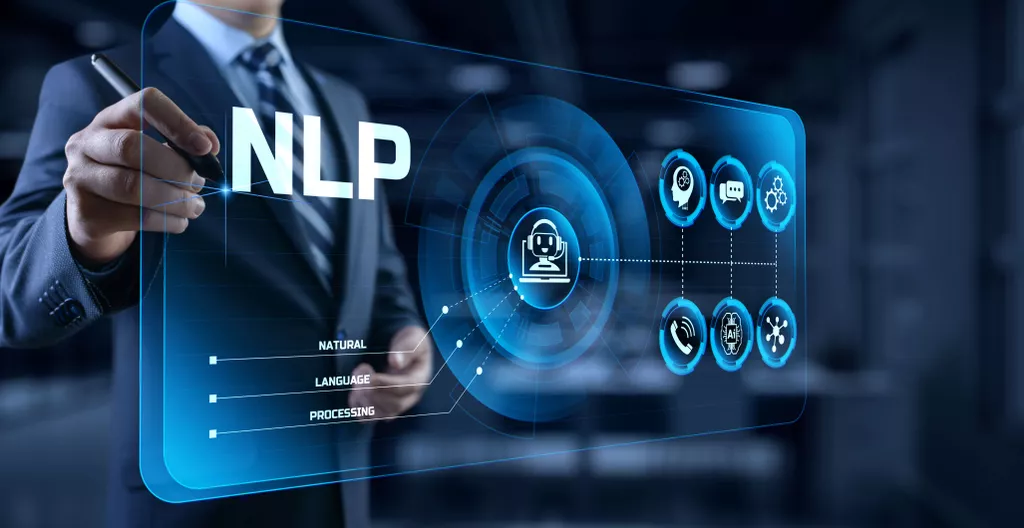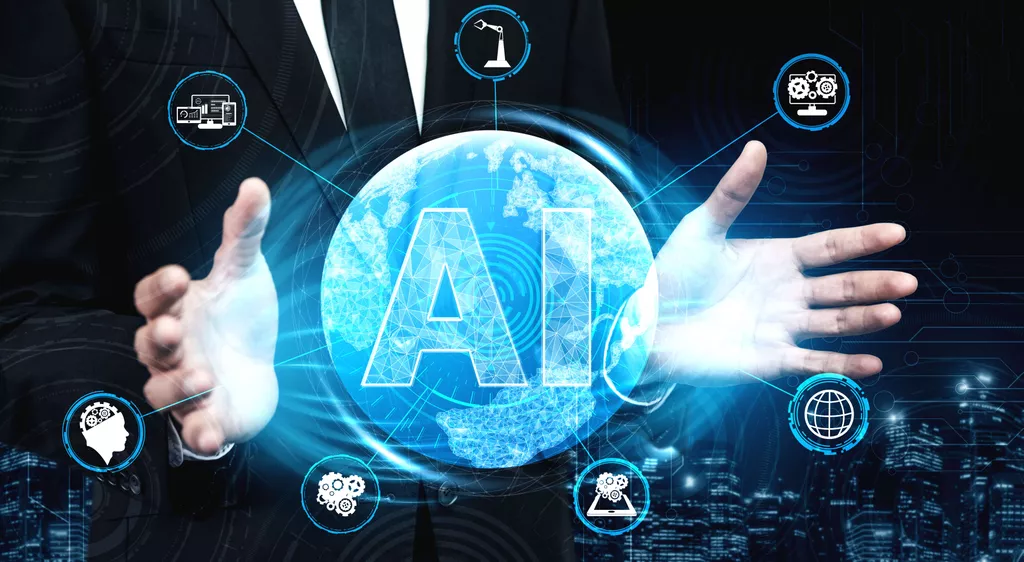In light of the virus’s prevalence, people’s newfound vigilance makes it critical for the healthcare sector to stay a step ahead of the curve. Medical chatbots offer a solution to monitor one’s health and wellness routine, including calorie intake, water consumption, physical activity, and sleep patterns. They can suggest tailored meal plans, prompt medication reminders, and motivate individuals to seek specialized care.
- Medical assistants use these chatbots to streamline patient care and eliminate any unneeded costs.
- That, in turn, increases the patient’s expectancy and even improves their health.
- Perhaps for this reason, multi-channel pharma is now more popular than ever before.
- Chatbots have become a game changer for healthcare organizations like never before.
- Studies have shown that Watson for Oncology still cannot replace experts at this moment, as quite a few cases are not consistent with experts (approximately 73% concordant) [67,68].
- Unlike financial data that becomes obsolete after being stolen, medical data are particularly valuable, as they are not perishable.
As a result of the involvement of large resources, they consume a lot of time and even increase management costs. In the future, chatbots in healthcare will be able to enhance their symptoms detection rate more accurately through collective patient data. This emphasizes that the healthcare sector will be going to witness the massive impact of AI-enabled operations. Healthcare virtual assistant chatbots are basically like digital personal assistants for your healthcare needs. They can help you book appointments, manage your meds, and even access your health records. Plus, they’re always available, so you can get help with your healthcare whenever you need it.
Administrative Tasks:
Brands like Nitro Cafe, Sephora, Marriott, 1–800 Flowers, Coca-Cola,Snap-Travel are good examples of this. Chatbots are exclusively designed to push brand values to an extensive range of prospects. They interact in a friendly way and build a good relationship with customers. Talking about customers in specific, they look for simple business interactions. This leaves the customer happy and satisfied because the service is quick and hassle-free. Chatbots can also be programmed to have a personality, sound natural and humorous, making them appear more humanlike.

It is partially because conversational AI is still evolving and has a long way to go. A well-designed healthcare chatbot can schedule appointments based on the doctor’s availability. Also, chatbots can be designed to interact with CRM systems to help medical staff track visits and follow-up appointments for every individual patient, while keeping the information handy for future reference.
2 User Privacy Vulnerabilities
This kind of bots is able to immediately receive important patient information such as prescribed and administered medication, allergies, check-up reports, etc. Virtual assistants save time and make life easier via automated customer support. Grand View Research predicts that the global chatbot market will reach 1.25 billion dollars by 2025, growing at a CAGR of 24.3 percent. The chatbots can use the information and assist the patients in identifying the illness responsible for their symptoms based on the pre-fetched inputs. The patient can decide what level of therapies and medications are required using an interactive bot and the data it provides.
- As chatbot technology continues to develop, we are likely to see even more uses for chatbots in healthcare.
- Chatbot for healthcare help providers effectively bridges the communication and education gaps.
- Moreover, training is essential for AI to succeed, which entails the collection of new information as new scenarios arise.
- 30% of patients left an appointment because of long wait times, and 20% of patients permanently changed providers for not being serviced fast enough.
- Hence, always try to add all the security tools and develop compliance-regulated healthcare applications when planning to implement chatbots in healthcare.
- From improved accuracy and greater access to healthcare to increased convenience and reduced costs, chatbot-based diagnosis could revolutionize the way that medical diagnoses are made and received.
It will give advice on healthy eating, offer lifestyle modifications, and remind them of other important activities. These bots can remind patients to take their meds, give info regarding drug interactions, and alert them if there are any issues with their treatment. AI chatbots can assess patients for clinical trial eligibility and supply information about ongoing trials, accelerating the process of enrolling participants and collecting data.
Ready to streamline your business operations and increase efficiency?
For example, a chatbot called Iris can schedule and cancel appointments, receive lab results, and send follow-up reminders. A chatbot designed specifically for the needs of a medical center could allow patients to book their appointments in less than a minute without ever having to get in touch with a human agent or receptionist. The healthcare chatbots implemented in your systems help simplify the tedious administration tasks and even help the patients take medicines on time. That, in turn, increases the patient’s life expectancy and even improves their health. That is eventually a great benefit for the people who are either alone or elderly and forget to take medicines on time. As evident from the benefits mentioned above, chatbots in healthcare streamline patient management and enhance the customer experience.
Travel nurses or medical billers can use AI chatbots to connect with providers when looking for new assignments. Bots can assess the availability of job postings, preferences, and qualifications to match them with opportunities. By closely monitoring these indicators, healthcare professionals can pinpoint the areas where ChatGPT delivers the most significant impact and further refine its applications for greater success. By leveraging ChatGPT as an educational tool, medical students can access a wealth of knowledge and support during their studies. ChatGPT can clarify complex medical concepts, provide real-time feedback and help students prepare for exams.
Use Cases and Examples of Chatbots in Healthcare
Chatbot technology can also facilitate surveys and other user feedback mechanisms to record and track opinions. More data storage makes it easier to accept patients, monitor their symptoms, engage them in direct patient communication, and keep track of medical records. While some are slower to infuse cutting edge technology into their institutions, those who are investing in upcoming tech are seeing positive results in both outcomes and patient satisfaction. One straightforward, but customizable technology that is becoming a popular addition is chatbots. If you want to build an infobot that delivers on their expectations, here are some crucial factors to consider.
How AI will impact the healthcare industry?
Digital data interventions can enhance population health
AI can provide powerful tools to automate tasks and support and inform clinicians, epidemiologists and policy-makers on the most efficient strategies to promote health at a population and individual level, the paper says.
But did you also notice that healthcare chatbots came in handy during the pandemic? Everyone needing medical info and care all at once put a huge strain on the healthcare system. But, these chatbots helped ease the load by providing quick answers and support, making it easier for patients and healthcare providers to get through the craziness.
What is Digital Transformation (DX)?
Use case for chatbots in oncology, with examples of current specific applications or proposed designs. Patients can complete their diagnoses from the comfort of their own home, without having to wait in line at a doctor’s office or hospital. This can be especially beneficial for those with limited mobility or who may be unable to travel to a medical facility. Obviously, chatbots cannot replace therapists and physicians, but they can provide a trusted and unbiased go-to place for the patient around-the-clock.
How AI will impact healthcare?
It can increase productivity and the efficiency of care delivery and allow healthcare systems to provide more and better care to more people. AI can help improve the experience of healthcare practitioners, enabling them to spend more time in direct patient care and reducing burnout.
Chatbot-assisted diagnosis is a form of Artificial Intelligence (AI) that uses natural language processing (NLP) to enable computers to understand and answer questions from patients. It is designed to provide patients with information about their health and related diagnosis, however, there are several limitations to this technology. Chatbot-assisted diagnosis is becoming a more widely metadialog.com used tool in healthcare, helping to provide more efficient and personalized medical solutions to patients. While this technology has the potential to revolutionize the healthcare industry, it is important to understand its limitations. In addition, chatbots can provide patients with the latest medical information, helping them to make more informed decisions about their health.
What is a triage chatbot?
Furthermore, healthcare chatbots are also used by healthcare payers to establish a relation between the company and the potential customers. One of the major advantages of using chatbots in medical diagnosis is that they are able to provide instant feedback and diagnosis to patients. These bots are able to process information quickly and accurately, providing a medical professional with a comprehensive overview of the patient’s medical history and symptoms. This can save valuable time and resources, as the patient is able to receive a diagnosis without having to wait for a doctor’s appointment.
- With the knowledge of the input, the bot can assess information and help users narrow down the cause behind their symptoms.
- For example, when the authority reviews an insurance claim with a patient over the phone or through an online portal instead of in person, fewer resources are needed to handle the transaction.
- Motivational interview–based chatbots have been proposed with promising results, where a significant number of patients showed an increase in their confidence and readiness to quit smoking after 1 week [92].
- An internal queue would be set up to boost the speed at which the chatbot can respond to queries.
- Large-scale healthcare data, including disease symptoms, diagnoses, indicators, and potential therapies, are used to train chatbot algorithms.
- With the help of this technology, doctors and nurses can save time on administrative tasks, as well.
A chatbot for healthcare provides users with immediate answers to frequently asked queries and lowers the number of tickets. Bots are ready 24 hours a day to interact with clients and offer quicker support. A medical chatbot recognizes and comprehends the patient’s questions and offers personalized answers. One of the most often performed tasks in the healthcare sector is scheduling appointments. A well-designed healthcare chatbot can plan appointments, based on the doctor’s availability. Businesses will need to look beyond technology when creating futuristic healthcare chatbots.
The Pros and Cons of Healthcare Chatbots
Companies in the healthcare industry frequently poll their clients for feedback. Customers are either not interested in providing feedback or do not want to take the time to fill out a feedback form. As a result, chatbots can help answer questions and solve problems at any time. This is a simple website chatbot for dentists to help book appointments and showcase different services and procedures.

If any cyber-attack happens because of security issues, the patient’s data can fall into wrong hands. For patients who require healthcare support regularly, chatbots are really beneficial as they help patients in having an effective connection with the doctors. Such bots also offer detailed health conditions records and help in analyzing the health impacts of the patients after the first medical prescription. Basically, with the use of chatbots, patients can contact doctors easily and can get all-in-one solutions.

Why is a chatbot in healthcare a quick and easy way to provide your customers with all the necessary information? Chatbots is a software responsible for establishment of conversation between a human and artificial intelligence. The conversation is carried out by using pre-calculated phrases in the form of texts. These chatbots are either cloud-based or on premise solutions, which are used by patients for checking symptoms, locating clinics or scheduling appointments.
Inflection AI Pi Chatbot: Bill Gates’ Favorite Assistant – Dataconomy
Inflection AI Pi Chatbot: Bill Gates’ Favorite Assistant.
Posted: Thu, 25 May 2023 07:00:00 GMT [source]
Challenges like hiring more medical professionals and holding training sessions will be the outcome. You may address the issues and provide the scalability to handle real-time discussions by integrating a healthcare chatbot into your customer support. As more and more businesses recognize the benefits of chatbots to automate their systems, the adoption rate will keep increasing. The healthcare chatbot market is predicted to reach $944.65 million by 2032 from $230.28 million in 2023. While handling many patients, you may miss out on crucial patient information.
Global Live Chat Software Strategic Business Report 2023 … – PR Newswire
Global Live Chat Software Strategic Business Report 2023 ….
Posted: Sat, 10 Jun 2023 02:00:00 GMT [source]
It can then provide predictive insights to healthcare providers, notifying them of upcoming maintenance requirements or potential malfunctions. This allows facilities to take preventive measures, such as scheduling maintenance during non-peak hours or proactively replacing components, to avoid unexpected breakdowns and disruptions in medical services. Predictive maintenance is a valuable feature offered by Generative AI in healthcare and pharma facilities. Generative AI chatbots have the capability to analyze data from medical equipment and predict potential failures before they actually occur. This proactive approach empowers hospitals and healthcare facilities to effectively schedule maintenance and repairs, thereby minimizing equipment downtime and ensuring uninterrupted patient care. By incorporating Generative AI into the process of finding providers, individuals can save valuable time and effort in searching for healthcare professionals who align with their specific needs.
What problems can chatbot solve?
- Guide a visitor to the right place on your site.
- Identify the best product or service for their needs.
- Gather contact information for sales and retargeting.
- Gather data about customer interests and behaviour.
- Qualify a them a MLQ or SQL and link them up to a sales rep.
